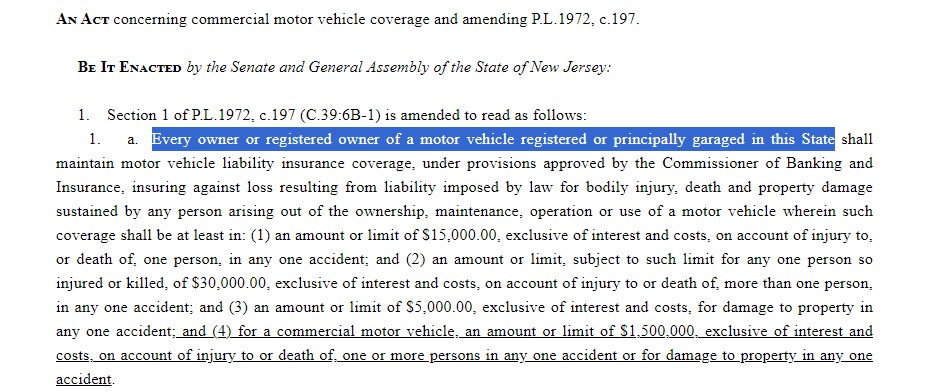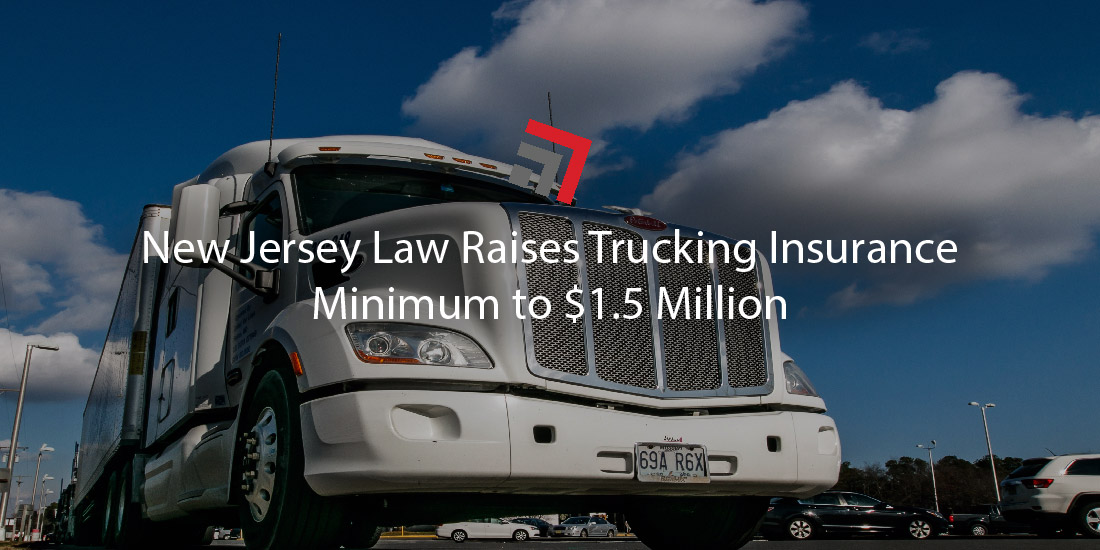New Jersey may not have a professional baseball team, but the state sure knows how to throw a changeup.
The Garden State has modified its state law, increasing the minimum requirement in which commercial trucks must carry for insurance coverage. The amount has been raised to $1.5 million.
The legislation, introduced in June 2022, was approved last month and signed by New Jersey Governor Phil Murphy on Jan. 16.
According to the bill, the new requirement takes effect on “the first day of the sixth month next following the date of enactment”. While an exact date was not confirmed by state officials, this language implies the minimum insurance requirement of $1.5 million will come into play July 1.
Commercial vehicles in excess of 26,000 pounds (Class 8 heavy-duty trucks) will be subject to this requirement.
Unclear whether law applies to interstate trucking
Initial reception of the law could best be described as being perplexed. Trucking interest groups, including truck-centric law firms, are unsure of the law’s scope. They are concerned that the bill doesn’t directly specify whether the increased minimum insurance rate applies to commercial vehicles operating solely within New Jersey (intrastate) or to vehicles engaged in interstate commerce.
A partner at one trucking-focused law firm told FreightWaves, “From the four corners of the bill, I can’t see how they’re going to enforce [the requirement].”

The first section in the act has language that could be read as applying to only New Jersey-based trucking companies. However, legal experts contest that another factor complicates this.
The International Registration Plan (IRP) program permits vehicles that travel in two or more states (interstate) to register with one state and then extend permission to operate into other jurisdictions upon registration fees. IRP functions as a compact among all 50 U.S. states.
In other words, the IRP registration can be submitted for all states that a certain vehicle does business in. For example, a truck originally registered in New York could also, through the program, have registration in Connecticut, Pennsylvania, and New Jersey. While technically associated with a New York-based fleet, the particular truck is officially registered in all four of those states.
That said, the IRP program presents a valid concern for non-New Jersey trucking companies who have used it to register vehicles in the Garden State. The wording above clearly states “registered owner of a motor vehicle”, thus concerning trucking businesses and legal experts.
If a trucking company has a vehicle registered to New Jersey through the IRP will the truck be subject to the state’s new insurance requirement?
While it’s unclear whether this will actually happen as well if it’s even the intent of New Jersey legislators, there are rules within interstate compacts that could challenge the state’s potential inclusion of IRP registered vehicles, the law firm partner added in his conversation with FreightWaves.
Final Thoughts
State legislation may not have the same immediate reach or power as federal rules and mandates, but their advancement of particular laws can be a “Firestarter” for shifting the industry’s regulatory dynamic.
California is the posterchild of this phenomenon, as other states will typically react to whatever laws the influential state passes. Some states may follow its lead, while other ones take a stand against it.
As for New Jersey’s insurance requirement, the increase to a $1.5 million minimum is a bold departure from previous norms. When compared to most states, the amount is noticeably higher. Trucking companies should keep an eye on the wider implications of this new law and if other states will follow suit in the future.
Contact one of our team members if you have any questions regarding this topic or any others in domestic logistics.
More blogs similar to this:



Recent Comments